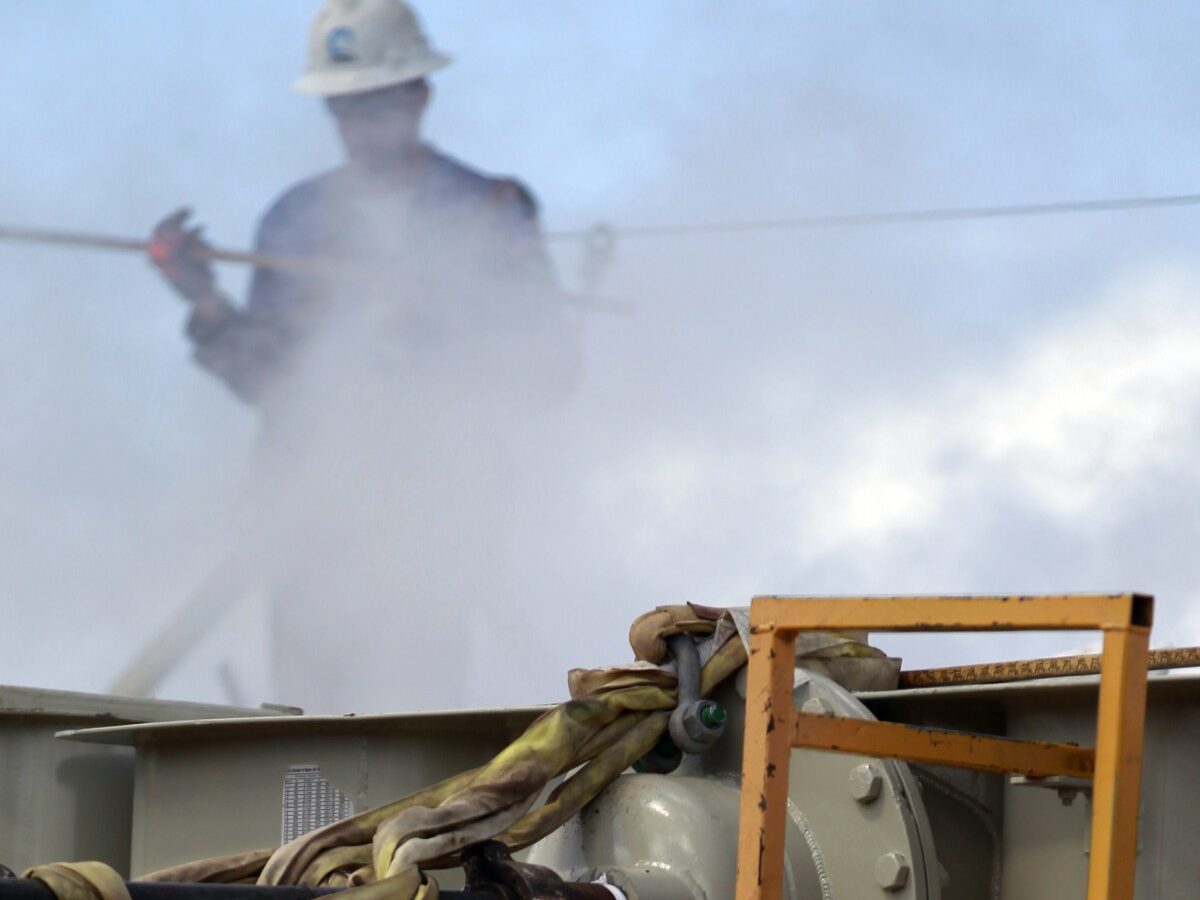
As residents in oil-rich portions of the U.S. battle to keep the fracking industry out of their backyards, research outlets are funding studies for technology that would presumably make the fracking process less expensive for oil operations.
The University of Texas at San Antonio and the Southwest Research Institute are spending $200,000 to create a filtration system for treatment of flow-back water produced through the fracking process. Researchers aim to utilize the charcoal filtration product biochar to treat the water.
That water, also known as fracking water, has been the source of controversy and frustration for the oil industry, as an effective and economically viable option for fracking water disposal has yet to be found.
In the fracking process, a mixture of water, silica sand and chemicals are shot into the ground to break up and access deep oil deposits. When oil is extracted, a mixture of water initially comes along with it. That water, known as flow-back, is contaminated not only with silica sand, chemicals and traces of oil, but also with naturally occurring metallic matter found below the surface.
Since the fracking boom erupted, oil companies have grappled over what to do with the contaminated wastewater — and their concerns are no small matter. Each fracking well uses up to five million gallons of the fracking fluid mix, which is primarily made up of water.
Ohio has become the recent dumping site for the toxic wastewater, with old oil wells serving as the most popular option: when fracking operations in Pennsylvania and Ohio wrap up, the water is transferred to Ohio wells, where it’s injected into the ground — forever.
According to the science publication Phys.org, the biochar, when introduced to the water, would attract the salt and heavy metals, purifying the water — to an extent. Ideally for the industry, this would then allow frack wastewater to be recycled or disposed of without the need for well disposal, and the associated costs and danger.
But researchers aren’t done just yet. Throughout the study, the biochar will be tested on samples derived from the Eagle Ford shale in Southern Texas. The study will also invest in computer models for the purification process and will look for ways to improve results if the process does not initially prove effective.
While the research and proposed filtration system is being touted as environmentally friendly, it doesn’t solve the issues residents have been concerned with. Even if proven effective, residents in oil-rich portions of the nation will continue to deal with fracking well spills as well as fracking waste water spills that can occur in the transportation process.
In July, a subsidiary of Exxon Mobil was fined $100,000 by the Environmental Protection Agency for leaking fracking wastewater into tributaries of the Susquehanna River. The spills stemmed from holding tanks of the fracking wastewater.


